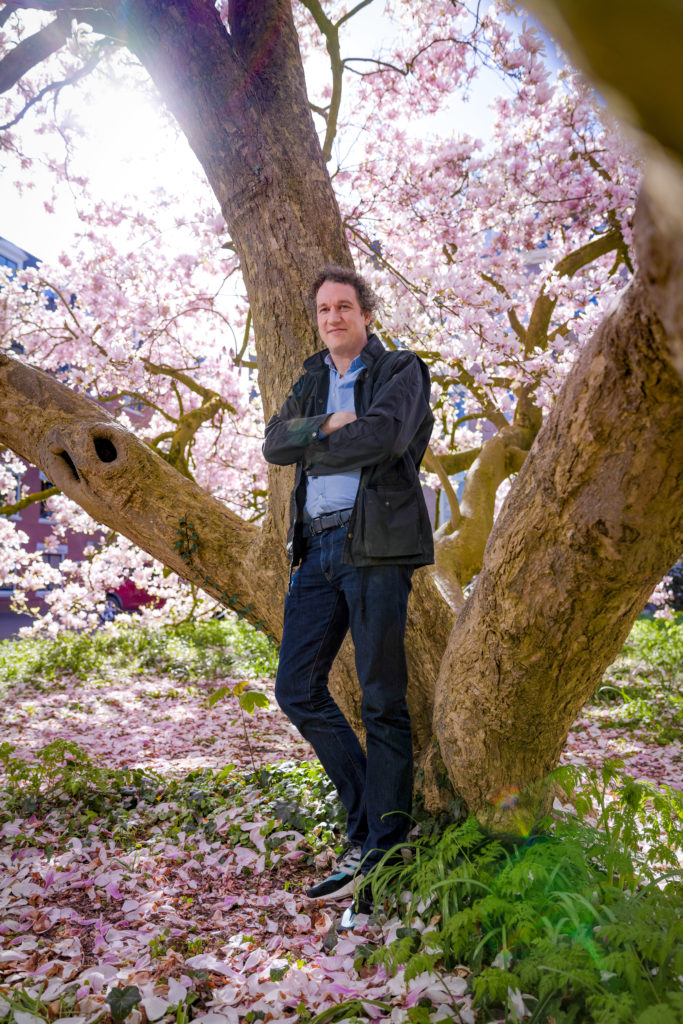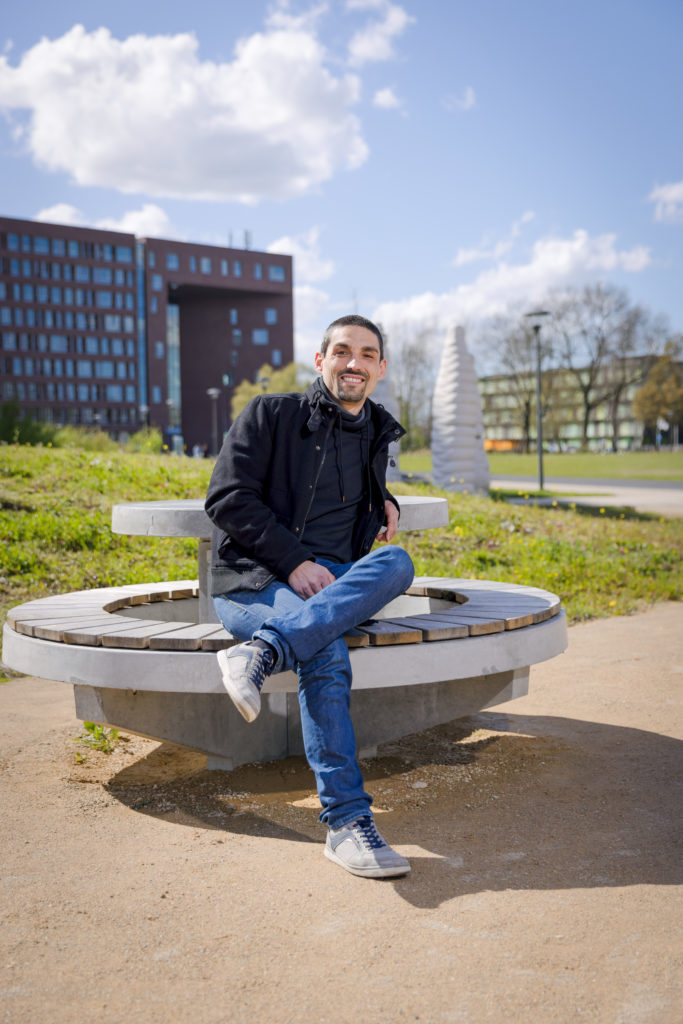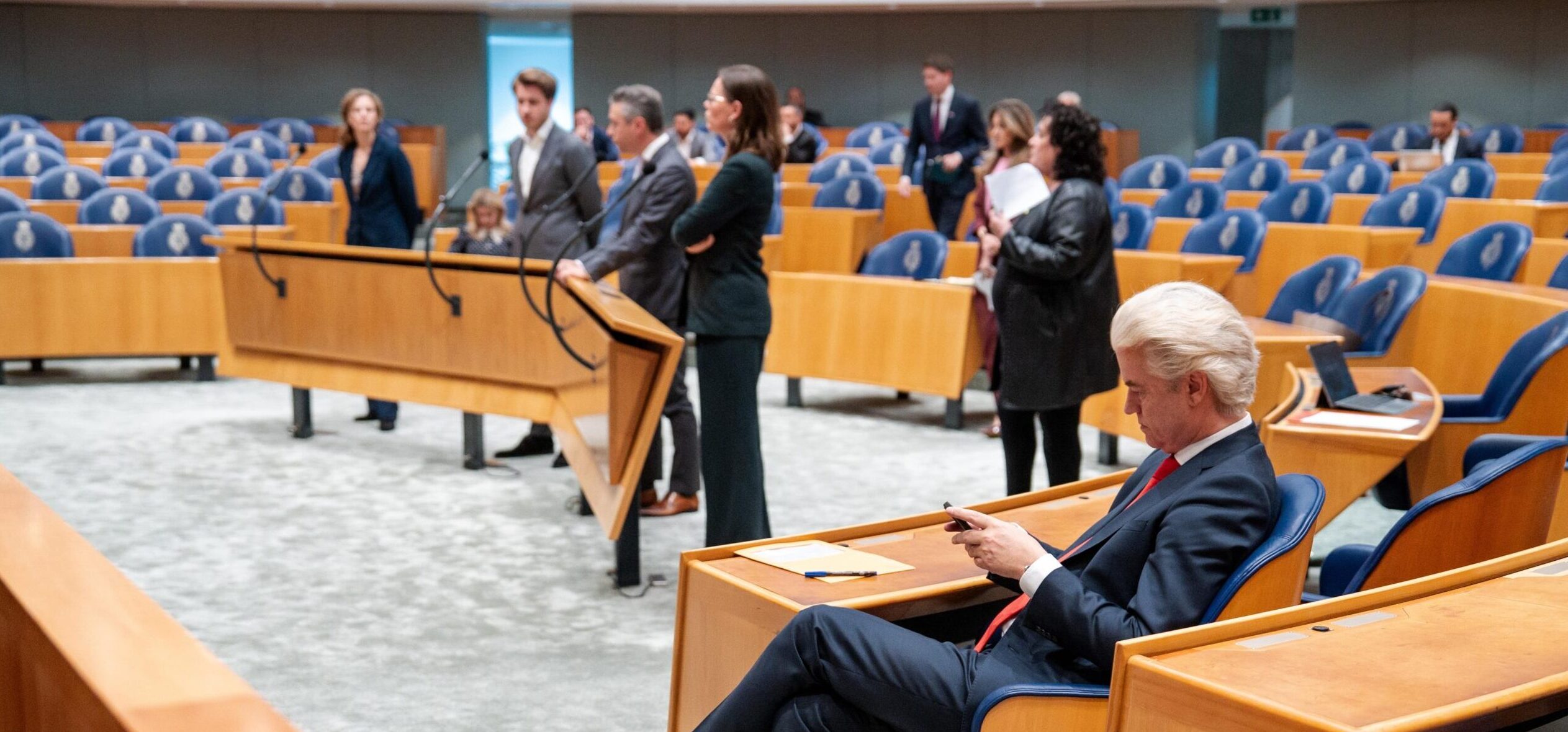Staff have until 25 April to register to stand for election to works councils, but there isn’t much interest in these consultative bodies. ‘Many people don’t really know what they are; they think they’re something from the 1960s.’
Eight years ago, the Maagdenhuis, the administrative headquarters of the University of Amsterdam, was the scene of great unrest. At first, in early 2015, students and staff were protesting against budget cuts, but it soon grew into a broader demand for more say in the university’s governance, which ended in the 45-day occupation of the Maagdenhuis. The protest struck a chord and students and university staff joined in from all over the country, including Wageningen.
Remarkably, newspaper Trouw concluded last February that the protests did not lead to higher turnouts at elections, or to more candidates for works or student councils. Last week, the Ministry of Education, Culture and Science even launched a campaign to lure more people to the voting booth.
Waning interest
Is there also a participation crisis in Wageningen too? Turnout for the previous elections was still relatively high, between 45 and 70 per cent for the various councils. But here, too, they are faced with waning interest: ‘Last year, we did not hold elections for the two PhD positions in the council: we only had two candidates,’ says WUR Council chair and associate professor of Forest and Nature Conservation Policy Jelle Behagel. ‘Of course, you would rather it wasn’t like that.’
Large organizations are required by law to have a works council as a way for employee to have a say in things. In Wageningen, things are somewhat complicated because the Wageningen University and Wageningen Research have some joint consultative bodies. The WUR Council is the consultative body between the Central Works Council (COR) and the Joint Assembly (GV). The works councils for the various science groups, Facilities & Services, the corporate staff and Wageningen Research are all represented on the COR by WU members. The Student Council and the COR are represented on the GV by WU members. The WUR Council regularly meets the Executive Board to discuss proposed policy changes and has veto and advisory rights regarding the Board’s decisions.

Bridge
‘I always enjoy giving my opinion, especially on topics outside my own work.’ Livio Carlucci is a lab assistant at the Agrotechnology & Food Sciences Group (ASFG). He joined their works council and the WUR Council three years ago.
In recent years, the councils have introduced changes both big and small. ‘For example, we have ensured that all employees from abroad can take a Dutch language course within working hours and paid for by their own department.
Managers sometimes lose touch with the shop floor
The same applies to Dutch employees who want to take an English course. This is super-important, but it used to be difficult for some staff, especially PhD candidates. Now it is set down on paper, although I must say that it’s not working perfectly yet in practice.’ That is also part of the works councils’ job, he says: ‘We also monitor whether policies that were decided on are being implemented properly. If not, we go back to the Executive Board for more discussions.’

Awkward moment
WUR Council chair Behagel is pleased that the resit policy has finally been amended, after several decades. Behagel: ‘Last year, the board came up with a new plan: an annual maximum number of exams students could take. We made very clear that wouldn’t work. It’s a policy change that benefits neither teachers nor students.’
The Executive Board had been wanting to revise the resit policy for years, partly to reduce the workload for lecturers. Finally, the Council and the Executive Board reached an agreement: one less resit opportunity per year. The Student Council agreed to this, with a few firm conditions.
You can’t leave it all to the people in Atlas and the Executive Board
It was an awkward moment for them: the students they represent did not want to lose a single resit. Wybrig Bakker, student council president and Master’s student of Earth and Environment: ‘We were literally the bridge between the board and students.’ Last October, the Council brought education dean Arnold Bregt and students together in Forum. ‘There was a chance to ask the policymakers questions, and various pennies dropped on both sides.’
This allowed the Student Council to enter into negotiations. ‘We made demands regarding scheduling, for example. We didn’t want resits straight after the Christmas break. Also, the resit period at the start of the summer vacation went from one to two weeks, giving students a bit more breathing space, and there is an extra resit opportunity for students in the final year of their programme under certain circumstances.’

Thank you
Close involvement in policy-making is a time-consuming business. Shelley van Haalen works at sports centre De Bongerd and is a member of the Facilities & Services Works Council. ‘We meet every Tuesday, in varying combinations of people. I spend the rest of the hours reading documents and preparing on issues we want to raise. For instance, I have been working hard on the issue of the workload. There have been various programmes over the years aimed at reducing it, but we haven’t seen much of an impact. How can that be?’
Heavy workloads also seem to be part of the problem in recruiting people for the works councils. All the members Resource spoke to are concerned about the low number of applications. The ASFG council, for instance, has room for 15 members, but there are currently only nine. The Facilities & Services council could only fill seven of the nine spots, while there will be 11 seats next time round. The Student Council is also struggling to find new recruits (see page 24).
Members give various explanations, such as the high time commitment. Carlucci says he gets an average of one and a half days’ compensation a week from his employer, but when he first started it was hard to really free up that time. ‘You don’t immediately have fewer tasks in the rest of your work.’
Women, PhD candidates and foreign colleagues are severely underrepresented
Moreover, says Van Haalen, people worry about how their boss will feel about them not being available for a day. ‘But,’ she says, ‘that’s the manager’s problem. Making time for employee participation is a legal requirement. The response should be: thank you for wanting to do this!’
Also, people don’t always know about the works councils. Chair Behagel: ‘Many people don’t really know what they are, and they think they’re something from the 1960s.’ And lastly, he thinks people are more focussed on their careers nowadays. This individualization stops PhD students from joining in, for example: ‘They want to finish their PhD as soon as possible, and after that their contract expires. And yet the financial compensation is fine and you can get contract extensions as a PhD student.’

Bubble
All the members we spoke to agree that the councils play a vital role. ‘The managers sometimes lose touch with the shop floor,’ says Carlucci. ‘Then ideas come up that are well-intentioned but are not going to work.’ ‘You can’t leave it all to the people in Atlas and the Executive Board,’ says Behagel too. ‘It’s important to join the conversation and test how things go down with staff.’
Bakker from the Student Council says, ‘Within a large adult organization like this, student issues are sometimes overlooked. For example, during the coronavirus pandemic I could see that it took a toll on students’ mental wellbeing. Partly at our insistence, this issue was put high on the Executive Board’s agenda. We now have a flexible team of psychologists, so students can always be seen within three weeks.’
Who should run for election to the councils for the coming term of office? Carlucci: ‘Anyone with an opinion. Although I would particularly encourage women, non-binary colleagues, PhD candidates and foreign colleagues, because they are seriously underrepresented at the moment.’ Bakker: ‘I think everyone has something to say about this organization, and it’s important to make your voice heard.’ Van Haalen: ‘My own motivation was to get to know the organization and my colleagues better: Facilities and Services is so broad. It’s good for your network. And honestly, anyone can do it.’
’20,000 people are affected by the university’s policy and you get to get involved in that,’ adds chair Behagel. ‘It’s good management experience. And I personally really enjoy working with students.’ And it’s satisfying when tangible results are achieved. Carlucci: ‘Getting something done after two years of hard work is really energizing.’
Interested in joining one of the works councils? You can put yourself forward as a candidate until 25 April. If you’re interested in helping to formulate new policies and discuss the major dossiers of the university and Wageningen Research, you can stand for election to the works council of your own workplace and, from there, possibly represent it on the COR and perhaps the GV. WUR employees can also stand for election to the GV. The period of office is three years for staff members and one year for students and PhD candidates.
Those who sit on a works council are compensated for the time they spend on it. That is one day per week; there is further compensation for those who additionally serve on the WUR Council (see the intranet for the regulations). For students, the Student Council is a full-time position, for which financial support is also available.
There is a joint kick-off for all new members and the councils run their own training days. In addition, members can take courses during their term of office to develop relevant skills.

 From the left: Shelley van Haalen, Jelle Behagel, Livio Carlucci, and Wybrig Bakker. Text Marieke Rotman Photos Eric Scholten
From the left: Shelley van Haalen, Jelle Behagel, Livio Carlucci, and Wybrig Bakker. Text Marieke Rotman Photos Eric Scholten 

